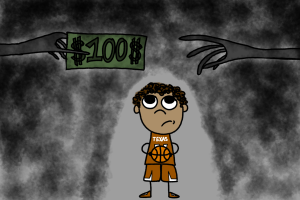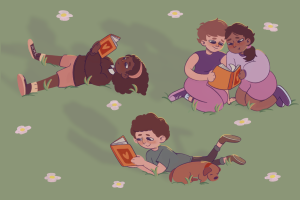Finding My Unapologetic Self As A Filipino-American
February 17, 2023
Editor’s note: This column was submitted by a member of the UT community.
I spent my childhood navigating through various societal norms, juggling what seemed like different identities of myself. At the early age of bumbling Tagalog and making friends at the playground, I immigrated to the U.S. from the Philippines. Moving around in Houston, I felt split into three: home Abby, church Abby and school Abby. Interactions with familiar Asian traditions were with my family members, while I went to a predominantly white church and was zoned to attend majority Black/Latinx public schools. My first thought holding my #GoneToTexas banner was, “Wow, I can be around other Asians like me,” but stepping foot on the Forty Acres resulted in me reliving my foreigner experience.
Between the two sets of family cultural values and college norms, I did my best to get plugged into Asian American spaces with the hopes that I could connect with other students. This consisted of dabbling in two Asian-American Christian ministry chapters, FSA, Women in STEM and a Christian a cappella group that stemmed from Asian American ministries. Unfortunately, I found myself to be neither here nor there in terms of balancing “Filipino American,” or gladly learning more about East Asian traditions to keep up with my friends. While there are Asian American spaces at UT, in my time up until 2020 on campus, they were homogeneously East Asian. Therefore, my friends and I bonded over what most find joy in: food – mainly rice – and music.
Though there are a large number of Asian American students in Houston and Austin, not much time is spent celebrating our cultural highlights while uplifting our differences and searching for moments we can be in solidarity. While I agree it is crucial to disaggregate the data, we are also tied together in deep roots dating as early as the 1800s, regardless of geography. We can find that even with language barriers, there is a level of similarity in our cultures. Sometimes it can be as deep as our histories with colonization and what it means to be Southeast Asian, or it can be trivial, like bonding over strict parents and academic pressure. I’ve found that rather than looking at our identity label, we can connect over our experiences and track backward through means of storytelling.
Universities can support student initiatives when they want to organize spaces that allow people to share their experiences. Rather than asking, “What do you do?” or “How does your family observe this?” we can think of how others can join in celebration appreciatively. In doing so, there is also a mindful consideration to maintain respect and avoid appropriating someone else’s culture. It’s through the small stories that we can gain so much insight on relations and diverse cultures rather than marketing how an incoming Longhorn can find their (ambiguous) place on the Forty Acres. We can make space for all, especially those who are stumbling in between these circles.
From my time at UT, seeing my friends become more in touch with their cultural practices inspired me to dig deeper into ours and research more into the why. I wanted to genuinely connect with my roots, rather than participate in something just for the sake of my Filipino blood. Now, my parents are able to openly talk about fond memories from their childhoods in the Philippines and bring them back into our home.
Triño is a communications alumni of the University of Texas at Austin. She graduated in 2020.








